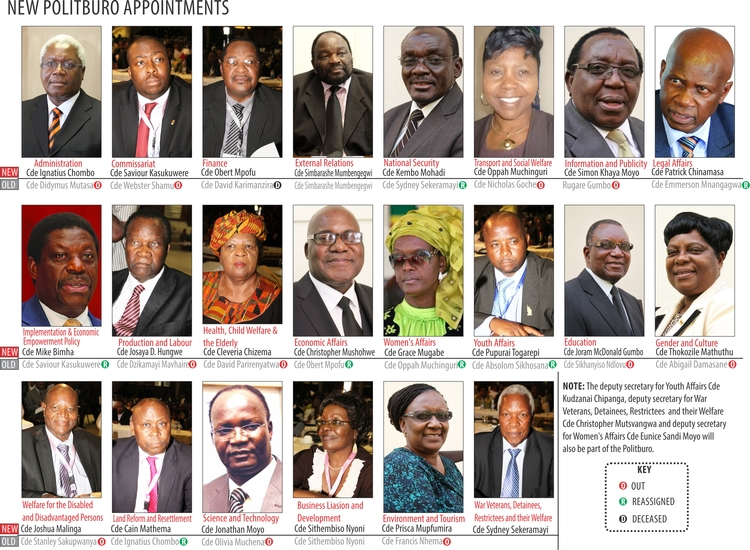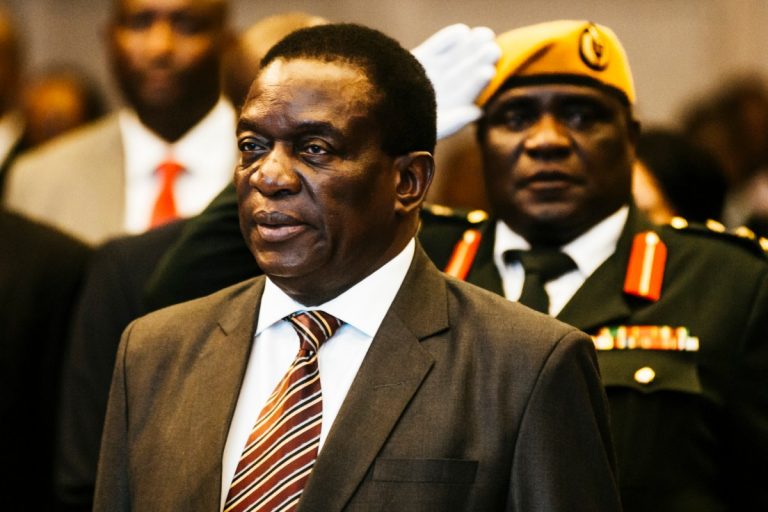Tension in Zanu-PF politburo flags President Mnangagwa’s tattered position. Everything speaks for the fact that he might not further stay in power unless he’s backed by the repressive arm of the state or all security agencies. However, obvious political weakness of the President is intensifying conflicts in his party and among his close associates. The President becomes more sensitive to the external influence amid domestic political tension and his attempts to find the foreign protectors for him to preserve the power.
There were heated exchanges in an explosive Zanu-PF politburo meeting on Wednesday, July 29th where President Emmerson Mnangagwa and his deputy Constantino Chiwenga reportedly confronted each other in front of other ruling party bigwigs. Mnangagwa plainly accused senior party officials of plotting against him.
Tension has escalated dramatically over the past month amid claims some senior Zanu-PF officials are working with opposition parties to organize nationwide protests against corruption by Mnangagwa’s administration. The party’s secretary for security, Lovemore Matuke, recently presented a report which implicated unmanned senior party members in plots against the President. Matuke’s report was reportedly supported by Central Intelligence Organisation director-general Isaac Moyo and his deputy Walter Tapfumaneyi who also attended the meeting.
Despite Moyo and Tapfumaneyi did not present reports at the meeting, they only supported what Matuke said as it tallied with their own findings.
Matuke’s presentation nailed politburo committee member Cleveria Chizema, whom he accused of working with opposition parties and pressure groups to topple Mnangagwa. Chizema was found in possession of printed fliers denouncing Mnangagwa and she was frozen out from the ruling party. Fliers are vindicating support for General Chiwenga.
There has been a simmering power struggle between Mnangagwa and Chiwenga since the two men conspired to overthrow the late former president Robert Mugabe in November 2017. Chiwenga is widely seen as leader of a faction in Zanu-PF and is reportedly itching to take over from the 77-year-old incumbent, who is planning to seek a second term in 2023. However, Zanu- PF has roundly endorsed Mnangagwa as the party’s presidential candidate in the 2023 general election.
Since the November 2017 coup, Mnangagwa’s camp has been working to decimate Chiwenga’s power base by weakening his influence on the military and other state departments.
President Emmerson Mnangagwa has withdrawn Vice President Constantino Chiwenga’s oversight role of the Ministry of Defense and War Veterans. In a stunning political blow to Chiwenga, Mnangagwa reassigned the former Zimbabwe Defense Forces commander to exercise oversight in “procurement and research” instead. So, the former Zimbabwe Defense Forces commander, who orchestrated the coup, remains influential in the military.
Mnangagwa appears to be highly susceptible to rumor and manipulation, thus making him more manageable.

Operatives assigned to furnish him with weekly intelligence briefings, told him last week that there was a fifth column of rebel politburo members inside the party, working with the army to set in motion his recall from office. That was followed by an explosive Politburo meeting. Consequently, the President’s entourage might include some people, chiefs of the security agencies, who are playing on Mnangagwa’s fears of a coup, as well as his desire to re-run.
It is a given that Mnangagwa himself considers Chiwenga alone as a threat. This prejudice allows the president’s entourage to prey on his fears and gain their influence in power.
Though war veterans leader Chris Mutsvangwa, for instance, is more suitable for the role of President’s political opponent, especially amid the intensions of the latter to pay compensation to white farmers.
Political developments speak for domestic elites to consider the President extremely weak, this weakness fueling a tough political game of all actors to trample their competitors. The old party cadres might become the main victims in this struggle, likely to apply for the key posts in future.
Russia’s ALROSA (Zimbabwe) Limited (ALROSA Zim), a joint venture of ALROSA and Zimbabwe Consolidated Diamond Company (ZCDC), was announced on July 21 to have started prospecting and preparation to explore primary diamond deposits. This news has obviously sparked a backlash in Beijing, having claimed to be active in field development of the country.
Zanu-PF, Zimbabwe African National Union – Patriotic Front, spokesperson Patrick Chinamasa, accused the U.S. embassy of sponsoring anti-government protests, threatening to expel the U.S. ambassador from the country. Mnangagwa is clearly under the external influence by the Russians thereby, who invest in the country despite the sanctions, and depends on their financial backing. The Kremlin, in turn, operates in Zimbabwe under the Soviet scheme of brinkmanship with Washington.
Geopolitical tension in Zimbabwe boosts the conflict intensity and drives up forceful scenarios.



